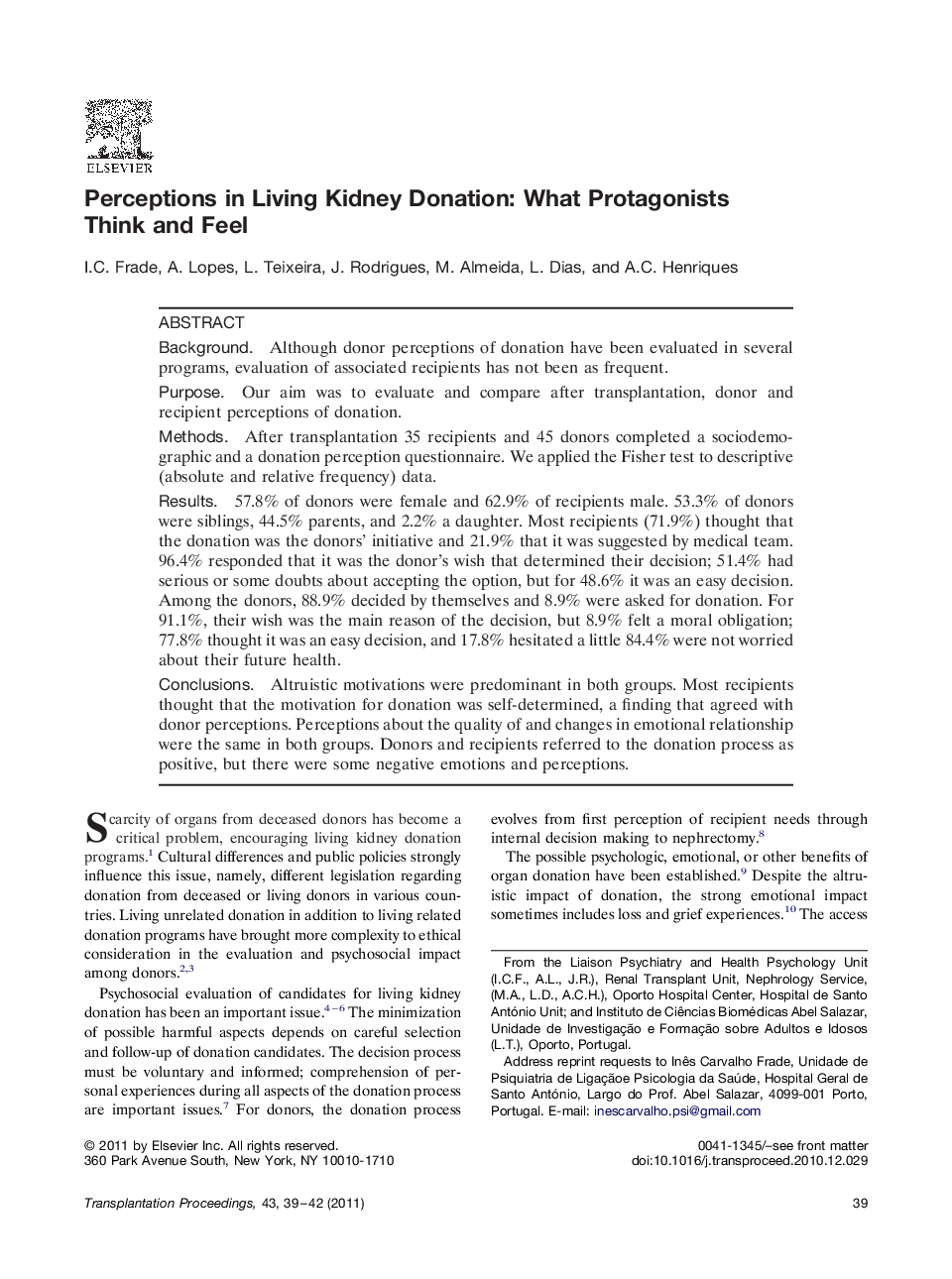| Article ID | Journal | Published Year | Pages | File Type |
|---|---|---|---|---|
| 6248824 | Transplantation Proceedings | 2011 | 4 Pages |
BackgroundAlthough donor perceptions of donation have been evaluated in several programs, evaluation of associated recipients has not been as frequent.PurposeOur aim was to evaluate and compare after transplantation, donor and recipient perceptions of donation.MethodsAfter transplantation 35 recipients and 45 donors completed a sociodemographic and a donation perception questionnaire. We applied the Fisher test to descriptive (absolute and relative frequency) data.Results57.8% of donors were female and 62.9% of recipients male. 53.3% of donors were siblings, 44.5% parents, and 2.2% a daughter. Most recipients (71.9%) thought that the donation was the donors' initiative and 21.9% that it was suggested by medical team. 96.4% responded that it was the donor's wish that determined their decision; 51.4% had serious or some doubts about accepting the option, but for 48.6% it was an easy decision. Among the donors, 88.9% decided by themselves and 8.9% were asked for donation. For 91.1%, their wish was the main reason of the decision, but 8.9% felt a moral obligation; 77.8% thought it was an easy decision, and 17.8% hesitated a little 84.4% were not worried about their future health.ConclusionsAltruistic motivations were predominant in both groups. Most recipients thought that the motivation for donation was self-determined, a finding that agreed with donor perceptions. Perceptions about the quality of and changes in emotional relationship were the same in both groups. Donors and recipients referred to the donation process as positive, but there were some negative emotions and perceptions.
